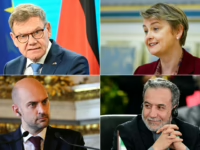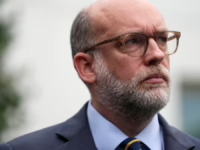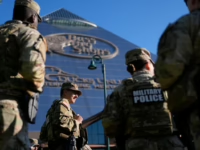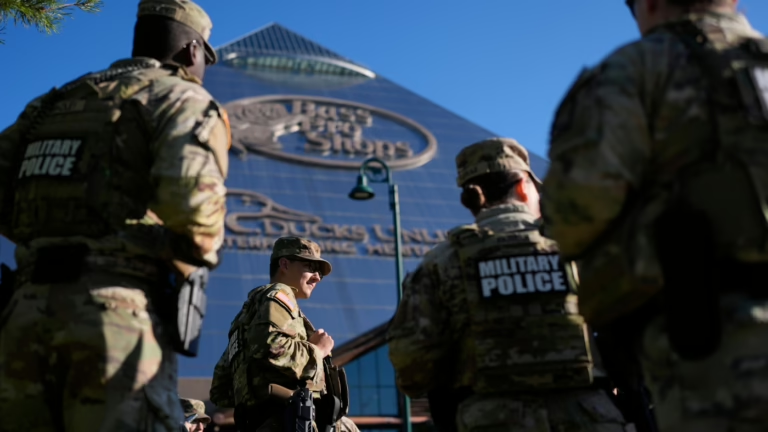National Guard personnel patrol near a Bass Pro Shops location in Memphis, Tenn., on October 10.
George Walker IV/AP
hide caption
toggle caption
George Walker IV/AP
The Memphis Police Department has confirmed that National Guard troops have commenced patrols within the city. This deployment is part of a federal initiative launched under President Trump aimed at addressing the city’s crime challenges.
This federal task force, which began operations last week, comprises agents from multiple federal agencies working collaboratively to reduce crime in Memphis. The Trump administration has characterized Memphis as facing “extreme levels of violent crime” that have strained the capacity of local authorities to manage effectively.

According to Memphis Police Chief Cerelyn “CJ” Davis, a limited number of Guard members had been present in the city beforehand to assist with planning and logistical support. However, the exact number of troops currently deployed and their specific locations within Tennessee’s second-largest city remain undisclosed as of last Friday.
Unlike other cities where the Guard has been federally activated, in Memphis, the troops operate under the authority of the state governor. This contrasts with deployments in states like California, Oregon, and Illinois, where federal activation has sparked legal disputes initiated by state and local officials.
While some advocate for federal involvement as a means to reduce crime, opponents argue that such actions disproportionately target cities governed by Democrats. Legal analysts also express concern that these federal interventions may be pushing the boundaries of presidential authority and the appropriate use of military forces domestically.
Roles and Responsibilities of Troops in Memphis
President Trump has likened the Memphis task force to a similar program in Washington, D.C., where troops have been active since August, primarily focusing on patrol duties and community improvement projects.
A presidential memorandum outlining the task force’s objectives emphasizes crime reduction, immigration law enforcement, and support for local police through recruitment, retention, and training initiatives. It also calls for rigorous enforcement of offenses ranging from assault to traffic infractions. The memorandum allows for the possibility of deploying additional Guard members from other states if needed.

The task force is composed of representatives from 13 federal agencies, including the FBI, DEA, and the Bureau of Alcohol, Tobacco, Firearms and Explosives.
At a recent press briefing, Tennessee Governor Bill Lee, a Republican, clarified that the Guard will primarily provide support functions and will not have arrest powers. He also noted that the troops will remain unarmed unless local law enforcement specifically requests otherwise. The operation is planned to unfold in stages over the coming months.
The city government’s official website describes the Guard members as additional “eyes and ears” assisting both local and federal law enforcement. It emphasizes that the troops will be easily recognizable in their standard uniforms, will not wear masks, and that armored vehicles will not be utilized during this mission.
Local Leadership’s Perspective on the Deployment
Governor Lee has expressed strong support for the federal assistance, stating he has maintained ongoing dialogue with the Trump administration for several months to develop a coordinated strategy to tackle crime in Memphis using combined federal and state resources.
“Crime has long hindered Memphis’s progress,” Lee remarked during a White House visit on September 15. Tennessee’s Republican senators, Marsha Blackburn and Bill Hagerty, have also voiced their backing for the initiative.
Conversely, local officials have approached the deployment with caution. Memphis Mayor Paul Young, a Democrat, shared his reservations in a weekly newsletter dated September 19, questioning whether the National Guard is the most effective solution for reducing crime. Nonetheless, he acknowledged the city’s need for assistance in addressing homelessness and enhancing community upkeep, such as combating urban decay.

“Our city is already heavily invested in efforts like mowing grass, removing litter, and erasing graffiti,” Young explained. “With additional personnel and resources, we can expand these initiatives-clearing more vacant lots, picking up more trash, and revitalizing neighborhoods.”
Regarding public safety, Mayor Young highlighted that Memphis has seen positive trends, with declines in both homicide rates and overall crime in recent years. However, the city continues to face significant challenges, having recorded over 340 homicides in 2023, according to the Memphis Police Department.
Memphis is also actively engaged in multiple collaborative task forces involving state and federal agencies such as the FBI, U.S. Marshals, and ICE.






















